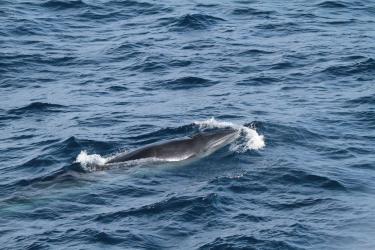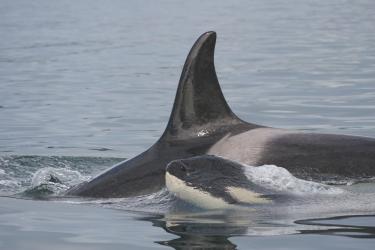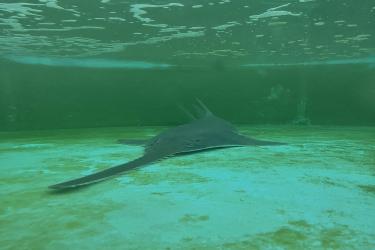National Marine Sanctuaries and Marine National Monuments protect America’s most iconic natural and cultural marine resources. These areas are home to important habitats such as breeding and feeding grounds, coral reefs, kelp forests, and important artifacts.
“Ensuring compliance within the fishing community is integral to conserving our protected marine resources. Monitoring sea turtle conservation measures is a high priority,” said Manny Antonaras, Assistant Director of NOAA’s Office of Law Enforcement, Southeast Division. “In the Southeast, we focus on protecting endangered sea turtles throughout our region, including marine sanctuaries, by monitoring for illegal fishing gear. We rely on our strong relationships with state and federal partners to aid in sea turtle focused patrols and operations such as our recent efforts.”
For the second consecutive year, NOAA’s Office of Law Enforcement organized and led a joint operation aimed at protecting endangered sea turtles in and around the Florida Keys National Marine Sanctuary. This is a key protected area in the Southeast. The operation brought together federal and state partners from NOAA’s Gear Monitoring Team, U.S. Coast Guard, and the Florida Fish and Wildlife Conservation Commission. U.S. Coast Guard personnel were new additions to this year’s training and helped expand enforcement presence during the operation. The goal was to enhance our turtle excluder device (TED) inspections that protect sea turtles and ensure commercial shrimp boats are fishing with allowable gear.
Learn more about how to comply with TED regulations
To kick off the operation, officers participated in a TED-related refresher training led by the Gear Monitoring Team at the Florida Keys Eco-Discovery Center. Turtle biologists from NOAA Fisheries' Office of Protected Resources National Sea Turtle Program provided information about sea turtle life history and trends seen in local turtle populations. During the operation, 24 officers deployed among six vessels, patrolling in and around the Florida Keys National Marine Sanctuary. A series of patrols and offshore boardings focused on inspecting TEDs and ensuring compliance with federal and state fishing regulations. The 3-day operation targeted vessels fishing offshore in federal waters in the southern Gulf of Mexico. They also patrolled inside Florida Keys National Marine Sanctuary waters as weather worsened. The commercial shrimpers, who were primarily targeting pink shrimp, hailed from ports ranging from Texas to Florida. Partners from the U.S. Coast Guard, Florida Fish and Wildlife Conservation Commission, and staff from the Gear Monitoring Team assisted in the patrols and boardings.
Officers boarded 11 vessels which took place while the fishermen were not fishing to reduce disruption to crew schedules. Upon boarding, the fishermen were accommodating and receptive to the boarding officers' questions and inspections. Several vessels had minor violations that were resolved on the spot through compliance assistance, such as trimming overhanging net flaps on the TEDs. In a few cases, TED and fishing violations were more severe and formal investigations were opened. Some of the documented violations included bent TED bars. If a TED bar is bent or set at an improper angle, it lowers the likelihood of a turtle escaping unharmed.
Efforts such as this TED-focused operation are critical to protecting and conserving our national marine sanctuaries and protected sea turtle species. To report suspected fishery violations, including those involving the National Marine Sanctuaries and Endangered Species Acts, call NOAA’s Law Enforcement Hotline, available 24/7 at (800) 853-1964.



